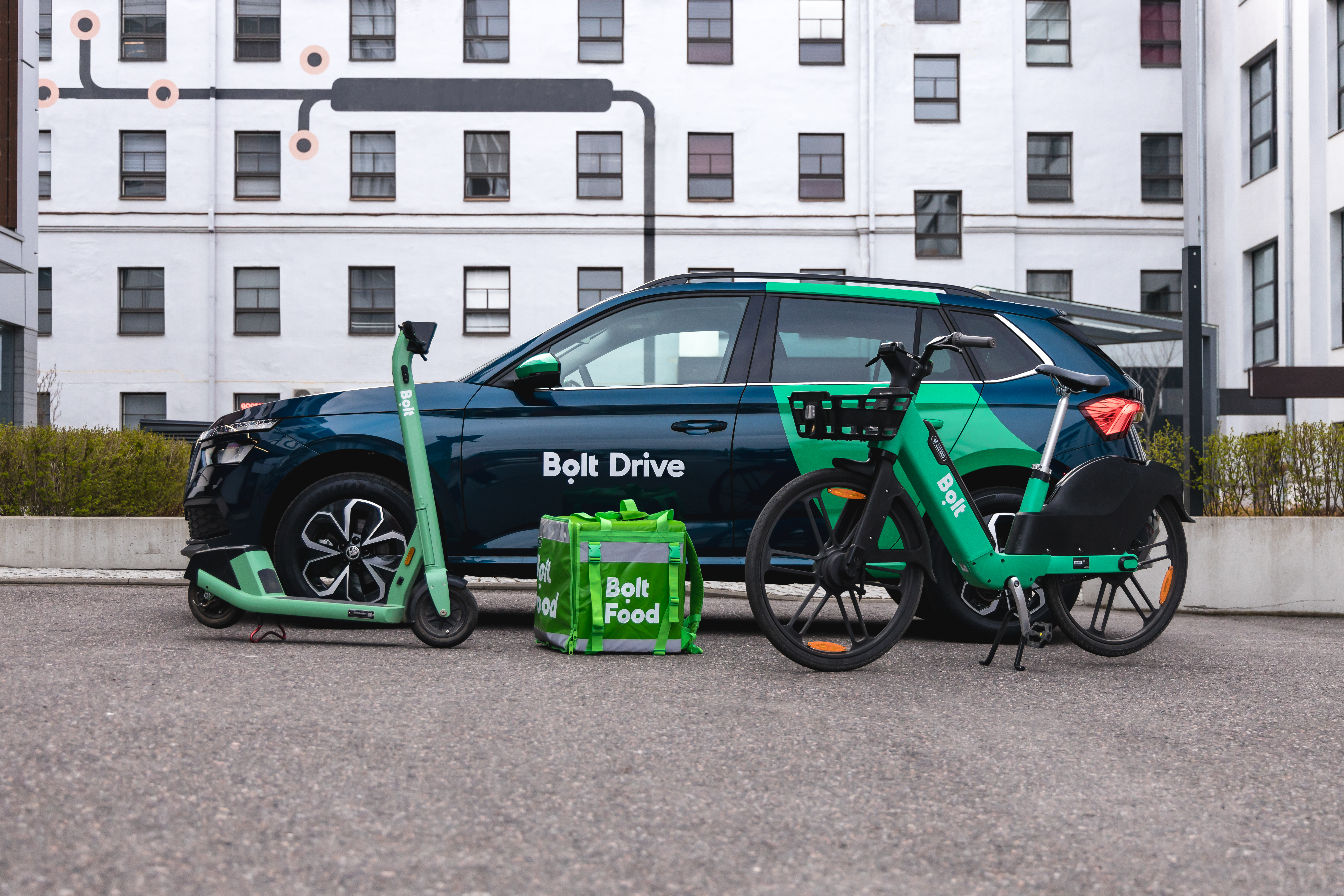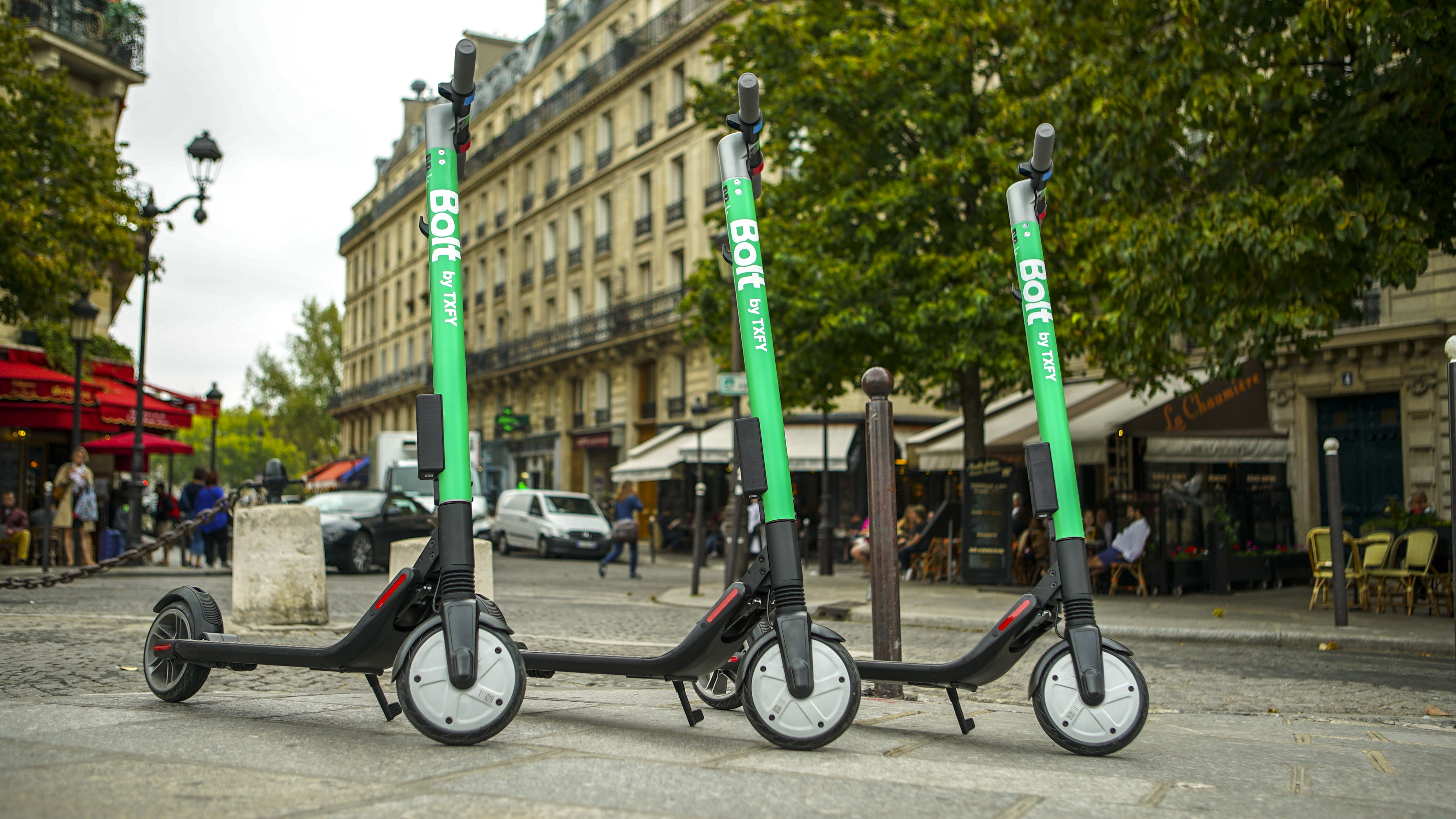Bolt, the Estonian mobility tech company that recently closed a huge round, is planning to onboard an additional 200,000 drivers in Africa this year, as it kicks-off expansion to more cities within its existing markets while keeping up with the growing demand for e-hailing services across the continent.
Bolt’s Africa regional director, Paddy Partridge, told TechCrunch that the ride-hailing firm has experienced a spike in on-demand transportation services, and that the current drivers — especially in Ghana and Nigeria where “there’s a real shortage of cars” — are not enough to meet this growth.
Bolt currently has more than 700,000 drivers catering to about 40 million riders across its existing seven markets in Africa.
“One of the challenges we have with our growth at the moment is that on the ride-hailing side, the demand for our services is growing faster than we’re able to onboard drivers, particularly in West and Southern Africa. We’re just not able to continue keeping up with that growth because drivers are not able to access vehicles at an affordable rate,” said Partridge.
“We are having to find ways to really attract as many drivers as we can… like make their earnings potential as good as possible so that we can bring people (drivers) onto our platform…to solve this issue around access to cars.”

Partridge said that Bolt already has vehicle-financing partnerships with banks in markets like Kenya, Nigeria and South Africa, and its planning to form additional collaborations, and explore the expansion of the current ones to reach more markets and drivers.
The shortage, Partridge says, is as a result of supply-chain challenges brought about by the COVID pandemic resulting in an increase in the cost of vehicles. Also, a high inflation in some countries like Nigeria have undermined people’s buying power.
However, partnerships are set to bridge the financing gap. In November last year, Bolt partnered with Metro Africa Xpress (MAX), a Nigerian mobility-tech company, to extend lease-to-own financing to its drivers. The partnership with MAX will provide financing for 10,000 energy-efficient vehicles (both electric and gas-powered) providing the much-needed support to drivers using leased vehicles or those employed to operate taxis. The taxi company hinted that it will explore similar arrangements in other markets where MAX can deliver to its drivers.
In South Africa, Bolt has a similar arrangement with FlexClub, a vehicle subscriptions marketplace, that allows drivers to get into the taxi business through a lease-to-own financing model. In October last year, FlexClub signed a partnership with Untapped Global (a smart asset financing institution) to extend credit for 2,000 EVs (half of them motorcycles) to on-demand workers using platforms such as Bolt and Uber in Mexico and South Africa.
These recent partnerships with EV dealers add to the company’s long-term goal of increasing the number of clean energy vehicles onboarded on its platform as part of the company’s contribution toward cutting carbon emissions from gasoline and diesel use. Bolt is planning to ink more deals with EV dealers in Africa.

“One of the models of partnership that we’re really expanding this year is around vehicle financing. So basically, finding ways to source vehicles and extend financing to drivers that want to drive on our platform…We have this partnership that we concluded recently with MAX in Nigeria, but we believe we can partner with them in other markets,” he said.
“What we’re really trying to do is to use our platform and our money to make these cars more affordable, and to de-risk the people that are providing the financing like banks or fleet managers. We are also seeing how we can work with the players that are developing the charging infrastructure, de-risking them to improve their economics (of scale) so they can roll that out faster.”
With the price of electric vehicles being slightly higher than regular taxis, Bolt has had to educate drivers on the value of owning one, to increase uptake. Bolt shares drivers’ data, including their payment history, to help financiers assess their credit-worthiness.
The company plans to increase the adoption of EVs across all its categories, including the four-wheeled options, three-wheelers (tuk-tuks) and motorcycles (bodaboda/okada). On EVs, the focus at the moment is on the four-wheelers, where the adoption is still slow owing to the hefty costs.
Bolt told TechCrunch that it needs more vehicles to support its growth-plan for the region; that is, the planned expansion of its taxi-hailing business within its existing markets and the growth of its food-delivery business across the continent. In 2020, South Africa was the first African market for the firm’s delivery business, followed a year later by Kenya, Ghana and Nigeria.
Bolt, Uber’s main rival in Africa and Europe, is also planning to enter at least two new markets within the North and West Africa regions before the year ends. Its other current markets are Tunisia, Tanzania and Uganda.
The ride-hailing firm is looking to tap Africa’s increasing smartphone penetration, willingness to take-up new technologies, a youthful population and the overall demand for on-demand transportation services.

Founded in 2013 by Markus Villig, Bolt has operations in 45 countries and has recently fashioned itself as a transport and deliveries company, after launching the car rental and the 15-minute grocery delivery services. While Villig said in a past interview that they will use its newly acquired $709 million funding to fuel the expansion of these new businesses, it seems that the focus on Africa for now will only be the ride-hailing and the food delivery businesses.
“These two sort of complement our portfolio of products that are basically designed to remove the need for people to own their vehicles. And we’ve seen promising results in the markets where we have rolled this out in Europe. And I think there is a big opportunity for this in Africa as well. But we’re trying to savor that opportunity and see if it makes sense to prioritize now,” said Partridge.
Meanwhile, the growth of the global ride-hailing service industry is expected to more than double over the next seven years to hit $98 billion, as the sector slowly recovers from the ravages of the COVID pandemic that paralyzed the industry. Globally, the sector is expected to grow by 10% CAGR year-on-year according to this report due to a spike in demand as the world embraces the “new normal” that has seen activities in industries like transport almost fully return in regions like Africa.
As the sector recovers, ride-hailing companies with operations in Africa and those eyeing the continent have picked up the momentum over the last few months, launching new products and setting up operations in new countries. China’s Didi finally made inroads into the rest of Africa after successfully operating in South Africa. Russia’s inDriver entered Algeria, as Uber introduced PoolChance, a feature that allows riders heading the same direction to get discounted rides when they share cabs.
As international e-hailing companies tap the African market, they are also increasingly having to bear with growing competition from homegrown e-mobility companies like Kenya’s Wasili and Little, and South Africa’s NextNow. Mass transit operators like SWVL, the Egyptian ride-sharing company with operations across Africa, South Asia and Middle-East, are breaking barriers by formalizing public transport in emerging markets.





























Comment